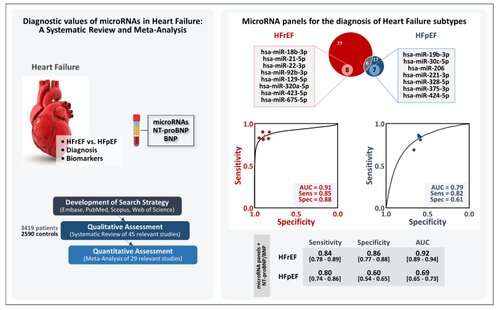
Almost half of all patients with heart failure have an “unknown” type. Researchers at UiO have studied whether biomarkers can provide better opportunities for diagnosis.
Heart failure remains one of the main causes of death worldwide, and it occurs when your heart is unable to pump enough blood and oxygen to support other organs in your body.
There are two distinct forms of this complex condition. In the first type, called HFrEF, the heart muscle weakens and cannot pump with enough force to push sufficiently blood into the circulation. Much is known about this condition, and recent advances in medicine have led to better diagnosis and more targeted treatments for patients.
However, there is a gap in knowledge about the other type of heart failure, called HFpEF. In this condition, the heart loses its ability to relax normally due to a stiff heart muscle. This type accounts for almost half of all patients with heart failure, and the number is growing. Despite this, less is known about this type of illness. What we do know is that neither diagnostics nor treatment is the same as with the HFrEF.
“All of the medical advances in how we diagnose and treat heart failure patients work for one form of heart failure, but not necessarily for this new one,” explains Gustavo da Silva, a postdoctoral fellow at the Department of Experimental Medical Research at the Institute of clinical medicine.
Together with Ph.d-student Reza Parvan and colleagues, da Silva has tried to find out more about the second type of heart failure, with a particular focus on biomarkers in the blood. The research is published in European Journal of Heart Failure.
Biomarkers can differentiate between types of heart failure
The researchers have now identified a panel of biomarkers that can differentiate between types of heart failure. Biomarkers are biological indicators that can be measured or detected in body fluids or cells, and which says something about an underlying condition or disease in the body. Have you ever gone to a physician and had your cholesterol measured? That is an example of a biomarker, measured through a simple blood test.
“Our finding makes it easier to distinguish between these two main types of heart failure. Such a diagnostic tool will indirectly assist physicians in their therapeutic decisions,” da Silva says.
A dataset of almost 3,500 patients
He and colleagues screened nearly 2,000 previous studies to include a total of 45 of them in a meta-analysis. Here, a particular category of biomarkers detected in the blood of patients with heart failure was pulled up.
Meta-analysis is a study design where the researchers systematically assess the results from previous research to derive conclusions about that body of research.
From the 45 studies, they obtained a data set of 3,464 patients and 2,666 healthy people.
The researchers then went on to see which of the biomarkers could help differentiate between one or the other type of heart failure.
No biomarker for the second type of heart failure
Using biomarkers to detect heart failure is nothing new. For instance, there is a good biomarker in the blood that can be used to diagnose HFrEF patients, according to da Silva.
For the other type of heart failure, on the other hand, there is no biomarker available for clinical use, or as part of the guidelines for diagnostics.
“Currently, we have no precise blood test that can identify heart failure for these patients. It will therefore be of great importance for this patient group that we have now identified biomarkers that can distinguish between the two types of heart failure,” he says.
Further research is needed on the prognosis of heart failure patients
Da Silva points out that they only tested these biomarkers for their performance in terms of diagnostics of heart failure.
“At this moment, we do not know whether they are also important for the prognosis of heart failure patients, i.e. how the patients are doing. We do not know whether the patients with these biomarkers will have more or fewer complications or deaths,” he says.
Therefore, Parvan is now performing a follow-up study with the same type of patients and the same biomarkers.
“His plan is to test the prognostic performance,” da Silva says.
As the number of patients with this unknown type of heart failure is increasing, this research has a big impact.
Source: Read Full Article
